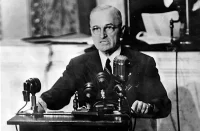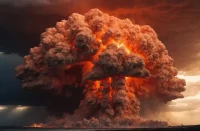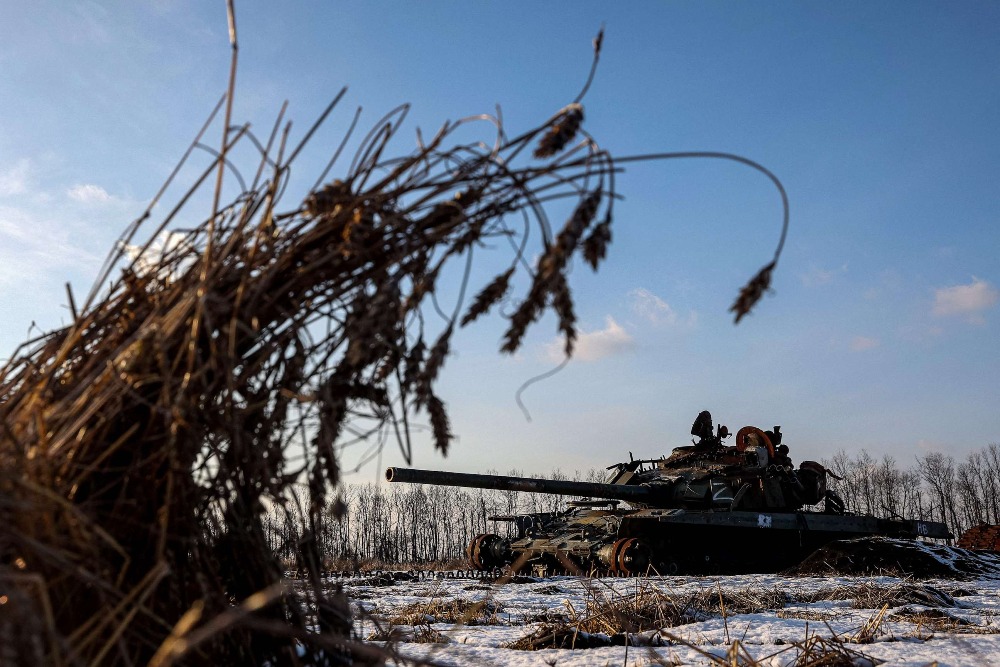Those among the American Establishment who remain committed to indefinitely prolonging this doomed-to-fail proxy war are doing so for either radical ideological reasons and/or self-interested financial ones related to their investments in the military-industrial complex. They’re pursuing their goal at the expense of the US’ objective national interests since the country can’t compete with Russia in the “race of logistics”. The longer that it tries, the greater the opportunity cost elsewhere.
Freshman Senator JD Vance has made waves over the past few days for boldly pushing back against the American Establishment’s fearmongering alleging that Russia will invade NATO if Ukraine cedes territory to it as part of a peace deal. NBC News rounded up his latest remarks in their report about them titled “Republican senator says Ukraine should cede land and cut a deal with Putin to end the war”, which will now be shared prior to analyzing them.
In Senator Vance’s words, “If you look at the size of the Russian armed forces, if you look at what would be necessary to conquer all of Ukraine, much less to go further and further west into Europe, I don’t think the guy’s shown any capacity to be able to accomplish these, these imperialistic goals, assuming that he has them…I think that if a NATO ally is attacked, we have to honor that commitment. I don’t see any, any plausible argument that Vladimir Putin is going to attack a NATO ally.”
He’s also on record saying that “It ends the way nearly every single war has ever ended: when people negotiate and each side gives up something that it doesn’t want to give up. No one can explain to me how this ends without some territorial concessions relative to the 1991 boundaries.” His views can be summed up by what NBC News informed reported that he said the other day, namely his belief that it’s in “America’s best interest … to accept Ukraine is going to have to cede some territory to the Russians.”
Everything that he said accurately reflects reality. For starters, any Russian invasion of NATO would risk World War III, which nobody in Moscow wants to flirt with. Even if someone did, however, their country would struggle to hold any part of that bloc’s territory in the face of conventional (military) and unconventional (insurgent) resistance as proven by the Ukrainian experience of the past 22 months. It’s therefore the height of fearmongering to extend false credence to that scenario.

As for Senator Vance’s envisaged endgame, it’s the most reasonable way to conclude this conflict, even if no formal peace deal is reached but rather an armistice or something more informal. In any case, the past 22 months have proven that NATO and its partners across the world couldn’t help Ukraine claw back any more territory despite tens of billions of dollars’ worth of investments in the failed counteroffensive. This is a sobering fact with far-reaching strategic implications that have yet to dawn on most Westerners.
Those among the American Establishment who remain committed to indefinitely prolonging this doomed-to-fail proxy war are doing so for either radical ideological reasons and/or self-interested financial ones related to their investments in the military-industrial complex. They’re pursuing their goal at the expense of the US’ objective national interests since the country can’t compete with Russia in the “race of logistics”/“war of attrition”. The longer that it tries, the greater the opportunity cost elsewhere.
Few foresaw another major conflict breaking out in West Asia before Hamas’ sneak attack on Israel in early October triggered precisely that, nor did they expect the Houthis to ramp up their attacks in the Red Sea out of solidarity with that group and consequently endanger a key global shipping route. Both interconnected challenges require the US to preserve its remaining stockpiles instead of further depleting them below their already low level out of desperation to keep the Ukrainian Conflict going.
Even in the best-case scenario that the latest West Asian conflict soon ends around the time as the Ukrainian one, the West as a whole is collectively much weaker than it was at the start of 2023 due to how many of its supplies were given to Ukraine to prepare for its ultimately failed counteroffensive. The Damocles’ sword of a hot Sino-US conflict breaking out in the Asia-Pacific over one of China’s territorial disputes with American partners has never looked more threatening from Washington’s perspective.
It is therefore truly in “America’s best interest … to accept Ukraine is going to have to cede some territory to the Russians”, ideally as soon as possible, so that the West can rebuild its stockpiles and expand its military-industrial capacity in order to better prepare for contingencies elsewhere. Failing to do so only further drains their finite resources, which could embolden others in their own territorial disputes to make a move, thus risking an overreaction from the West out of desperation to stop them.
After all, if the West’s conventional military capabilities are too limited to wage a proxy war or even a comparatively lower-scale direct one between them and whoever makes the aforementioned move, then it follows that more extreme measures might be seriously considered due to an absence of choice. It’s unimaginable that the US would let its rivals all enforce their claims on American partners, which is why it should be taken for granted that Washington would respond in some way to those scenarios.
In such circumstances, what could have otherwise been a regional proxy war (however protracted) might see the US overreacting shortly after hostilities begin by resorting to weapons of mass destruction, which could be done out of desperation for their side to win and also to deter others. Similarly, a global conflagration could explode if another Great Power feels emboldened by perceived US weakness to enforce their claims, such as if China makes a move on Japan, the Philippines, and/or Taiwan.
This isn’t speculation but is already dangerously being put to the test after Venezuela recently made a major move in its nearly 200-year-old dispute with Guyana, which this analysis here argued was opportunistically driven by perceived US weakness in an attempt to finally end their security dilemma. Although talks between their leaders will take place on Thursday and Venezuela’s said he’s committed to resolving the issue peacefully, there wouldn’t be worries about war if the US wasn’t perceived as weak.
None of this insight should be spun as supporting US saber-rattling, but as a reflection of geostrategic reality as it objectively exists. From the viewpoint of American conservative-nationalists like Senator Vance, their country’s interests are indeed threatened by artificially prolonging the doomed-to-fail Ukrainian Conflict, ergo the need to end it right away with a compromise. The supplementary arguments made in this analysis are meant to buttress his claims and defend them from warmongering smears.
Source: the author’s blog














Comments